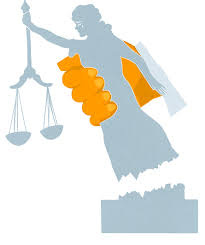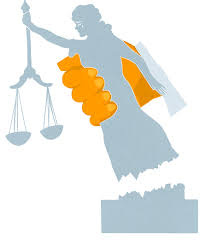In Must-Read, Historic Ruling, Judge Schools Trump - and Us - on Basics of Rule of Law
In a stinging rebuke to Trump's efforts to double down on its cruel and extra-illegal extradition policy, a Reagan judge explains the Constitution
(Editor’s note: Last week, federal judge J. Harvie Wilkinson III rejected the Trump Administration’s latest effort to avoid legal consequences for its extra-legal actions in the shameful case of Kilmar Abrego Garcia.
Writing for a panel of colleagues on the Fourth Circuit Court of Appeals, the 80-year justice, appointed by President Ronald Reagan, explained in clear, plain and succinct language the huge stakes in the matter, in which the government admits Garcia mistakenly was flown out of the country and put into a notorious prison in El Salvador.
In a series of judicial proceedings, including at the U.S. Supreme Court, the Administration has been ordered to “facilitate” Garcia’s return to the U.S., where he has a wife and three children. The government not only has refused to do, but has mocked the judicial branch for attempting to make them to do. In the face of Trump’s authoritarian project, Justice Wilkinson’s opinion is required reading).
It is difficult in some cases to get to the very heart of the matter. But in this case, it is not hard at all.
The government is asserting a right to stash away residents of this country in foreign prisons without the semblance of due process that is the foundation of our constitutional order.
Further, it claims in essence that because it has rid itself of custody that there is nothing that can be done.
This should be shocking not only to judges, but to the intuitive sense of liberty that Americans far removed from courthouses still hold dear.
The government asserts that Abrego Garcia is a terrorist and a member of MS-13. Perhaps, but perhaps not. Regardless, he is still entitled to due process. If the government is confident of its position, it should be assured that position will prevail in proceedings to terminate the withholding of removal order.
Moreover, the government has conceded that Abrego Garcia was wrongly or “mistakenly” deported. Why then should it not make what was wrong, right?
The Supreme Court’s decision remains, as always, our guidepost. That decision rightly requires the lower federal courts to give “due regard for the deference owed to the Executive Branch in the conduct of foreign affairs.”
That would allow sensitive diplomatic negotiations to be removed from public view. It would recognize as well that the “facilitation” of Abrego Garcia’s return leaves the Executive Branch with options in the execution to which the courts in accordance with the Supreme Court’s decision should extend a genuine deference. That decision struck a balance that does not permit lower courts to leave Article II by the wayside.
The Supreme Court’s decision does not, however, allow the government to do essentially nothing. It requires the government “to ‘facilitate’ Abrego Garcia’s release from custody in El Salvador and to ensure that his case is handled as it would have been had he not been improperly sent to El Salvador.”
“Facilitate” is an active verb. It requires that steps be taken as the Supreme Court has made perfectly clear. The plain and active meaning of the word cannot be diluted by its constriction, as the government would have it, to a narrow term of art.
We are not bound in this context by a definition crafted by an administrative agency and contained in a mere policy directive. Thus, the government’s argument that all it must do is “remove any domestic barriers to [Abrego Garcia’s] return,” is not well taken in light of the Supreme Court’s command that the government facilitate Abrego Garcia’s release from custody in El Salvador.
“Facilitation” does not permit the admittedly erroneous deportation of an individual to the one country’s prisons that the withholding order forbids and, further, to do so in disregard of a court order that the government not so subtly spurns. “Facilitation” does not sanction the abrogation of habeas corpus through the transfer of custody to foreign detention centers in the manner attempted here.
Allowing all this would “facilitate” foreign detention more than it would domestic return. It would reduce the rule of law to lawlessness and tarnish the very values for which Americans of diverse views and persuasions have always stood.
The government is obviously frustrated and displeased with the rulings of the court. Let one thing be clear. Court rulings are not above criticism. Criticism keeps us on our toes and helps us do a better job.
Court rulings can overstep, and they can further intrude upon the prerogatives of other branches. Courts thus speak with the knowledge of their imperfections but also with a sense that they instill a fidelity to law that would be sorely missed in their absence. It can rescue the government from its lassitude and recalibrate imbalances too long left unexamined.
The knowledge that executive energy is a perishable quality understandably breeds impatience with the courts. Courts, in turn, are frequently attuned to caution and are often uneasy with the Executive Branch’s breakneck pace. And the differences do not end there.
The Executive is inherently focused upon ends; the Judiciary much more so upon means. Ends are bestowed on the Executive by electoral outcomes. Means are entrusted to all of government, but most especially to the Judiciary by the Constitution itself.
The Executive possesses enormous powers to prosecute and to deport, but with powers come restraints. If today the Executive claims the right to deport without due process and in disregard of court orders, what assurance will there be tomorrow that it will not deport American citizens and then disclaim responsibility to bring them home?
And what assurance shall there be that the Executive will not train its broad discretionary powers upon its political enemies? The threat, even if not the actuality, would always be present, and the Executive’s obligation to “take Care that the Laws be faithfully executed” would lose its meaning. (U.S. CONSTITUTION Art. II, § 3; see also Art. II, § 1, cl. 8).
Today, both the United States and the El Salvadoran governments disclaim any authority and/or responsibility to return Abrego Garcia. We are told that neither government has the power to act.
The result will be to leave [Abrego Garcia] in an interminable limbo without recourse to law of any sort.
The basic differences between the branches mandate a serious effort at mutual respect. The respect that courts must accord the Executive must be reciprocated by the Executive’s respect for the courts. Too often today this has not been the case, as calls for impeachment of judges for decisions the Executive disfavors and exhortations to disregard court orders sadly illustrate.
It is in this atmosphere that we are reminded of President Eisenhower’s sage example. Putting his “personal opinions” aside, President Eisenhower honored his “inescapable” duty to enforce the Supreme Court’s decision in Brown v. Board of Education II to desegregate schools “with all deliberate speed.”
This great man expressed his unflagging belief that “[t]he very basis of our individual rights and freedoms is the certainty that the President and the Executive Branch of Government will support and [e]nsure the carrying out of the decisions of the Federal Courts.”
Indeed, in our late Executive’s own words, “[u]nless the President did so, anarchy would result.” Id. Now the branches come too close to grinding irrevocably against one another in a conflict that promises to diminish both.
This is a losing proposition all around. The Judiciary will lose much from the constant intimations of its illegitimacy, to which by dint of custom and detachment we can only sparingly reply. The Executive will lose much from a public perception of its lawlessness and all of its attendant contagions.
The Executive may succeed for a time in weakening the courts, but over time history will script the tragic gap between what was and all that might have been, and law in time will sign its epitaph.
It is, as we have noted, all too possible to see in this case an incipient crisis, but it may present an opportunity as well. We yet cling to the hope that it is not naïve to believe our good brethren in the Executive Branch perceive the rule of law as vital to the American ethos.
This case presents their unique chance to vindicate that value and to summon the best that is within us while there is still time.
The Fourth Circuit’s opinion is brilliant. It is measured, deferential, and brutally honest. It describes the stakes of the coming clash without being confrontational; indeed, the closing paragraph hopes for a resolution that honors the rule of law.
However, the Fourth Circuit also exhibits confidence that the rule of law will prevail, predicting that the “law in time will sign [the Executive’s] epitaph.” Sooner or later, Trump will lose, and his lawless deeds will be recorded in opinions and judgments like those issued by Judge Xinis and the Fourth Circuit.
Any rational president would take the hint and cut their losses before it is too late. Trump won’t act rationally, but the Fourth Circuit opinion is a template for the judgment of history that will be the epitaph of this administration.
Justice Wilkinson’s full opinion, including legal citations, may be found here.




